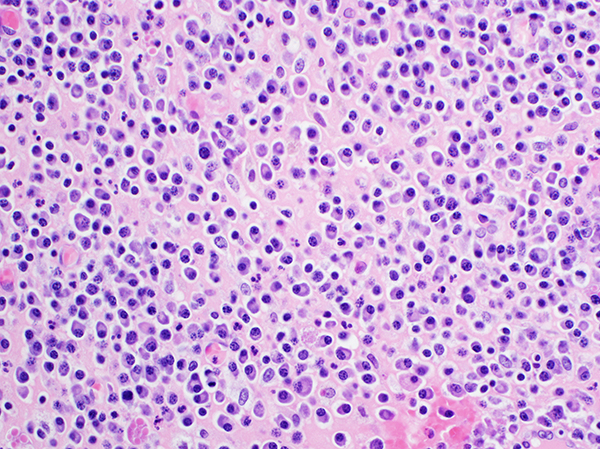Researchers from the Icahn School of Medicine at Mount Sinai say they have developed an RNA and DNA sequencing platform that benefits late-stage and drug-resistant multiple myeloma patients by determining which drugs would work best for them.
The team described its methodology (“Precision Medicine for Relapsed Multiple Myeloma on the Basis of an Integrative Multiomics Approach”) in JCO Precision Oncology.
“Multiple myeloma (MM) is a malignancy of plasma cells, with a median survival of six years. Despite recent therapeutic advancements, relapse remains mostly inevitable, and the disease is fatal in the majority of patients. A major challenge in the treatment of patients with relapsed MM is the timely identification of treatment options in a personalized manner. Current approaches in precision oncology aim at matching specific DNA mutations to drugs, but the incorporation of genome-wide RNA profiles has not yet been clinically assessed,” write the investigators.
“We have developed a novel computational platform for precision medicine of relapsed and/or refractory MM on the basis of DNA and RNA sequencing. Our approach expands on the traditional DNA-based approaches by integrating somatic mutations and copy number alterations with RNA-based drug repurposing and pathway analysis. We tested our approach in a pilot precision medicine clinical trial with 64 patients with relapsed and/or refractory MM.
“We generated treatment recommendations in 63 of 64 patients. Twenty-six patients had treatment implemented, and 21 were assessable. Of these, 11 received a drug that was based on RNA findings, eight received a drug that was based on DNA, and two received a drug that was based on both RNA and DNA. Sixteen of the 21 evaluable patients had a clinical response (i.e., reduction of disease marker ≥ 25%), giving a clinical benefit rate of 76% and an overall response rate of 66%, with five patients having ongoing responses at the end of the trial. The median duration of response was 131 days.
“Our results show that a comprehensive sequencing approach can identify viable options in patients with relapsed and/or refractory myeloma, and they represent proof of principle of how RNA sequencing can contribute beyond DNA mutation analysis to the development of a reliable drug recommendation tool.”
“Our study shows how a precision medicine approach incorporating RNA sequencing may identify viable and effective therapeutic options beyond the current FDA-approved armamentarium for multiple myeloma patients,” says researcher Samir Parekh, M.D., associate professor of medicine (hematology and medical oncology) and oncological sciences and director of translational research in myeloma at The Tisch Cancer Institute at the Icahn School of Medicine at Mount Sinai. “The trial has allowed us to test the accuracy of our platform, laying the foundation for our next-generation precision medicine framework.”
The results of this study showed that a comprehensive approach that includes RNA sequencing can provide more treatments for patients with advanced disease beyond the standard DNA analysis currently available, according to Dr. Parekh. A majority of the patients in the trial received a drug based on their cancer’s RNA profile and many benefited from their personalized treatment plans.
“Current approaches in precision oncology aim at matching specific DNA mutations to drugs, but incorporation of genome-wide RNA profiles had not been clinically assessed before now,” adds researcher Alessandro Lagana, Ph.D., assistant professor of genetics and genomic sciences at the Institute for Next Generation Healthcare and the Icahn Institute for Genomics and Multiscale Biology at the Icahn School of Medicine at Mount Sinai. “We expect RNA sequencing will play a larger role in the precise delivery of targeted drugs in oncology.”
Mount Sinai researchers have already received funding to develop a next-generation clinical trial that will incorporate machine learning algorithms into this precision medicine platform, which will implement interactive learning techniques to refine the predictions based on a patient’s success with the therapies and a physician’s opinion of the treatment plan.
“This research is part of an accelerating paradigm shift in cancer therapy, where treatment may be given based on the specific genomic alterations observed in a patient’s tumor, rather than on the tumor histology or tissue type,” notes Joel Dudley, Ph.D., executive vice president for precision health, director of the Institute for Next Generation Healthcare, an associate professor of genetics and genomic sciences at the Icahn School of Medicine at Mount Sinai. “RNA sequencing will likely complement current precision medicine strategies in the near future due to its ability to capture more dynamic aspects of unique tumor biology and provide information beyond what is capable with DNA alone.”


